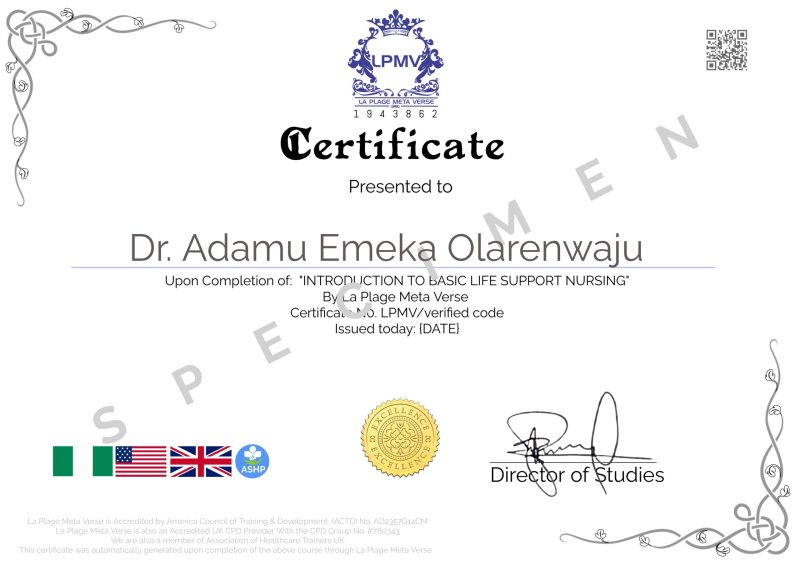Course Overview
The Substance Abuse course provides an in-depth exploration of the causes, effects, prevention, and treatment of substance abuse disorders. Students will examine various types of substances commonly abused, including alcohol, illicit drugs, prescription medications, and tobacco. The course will cover the social, psychological, and physiological factors contributing to substance abuse, as well as the impact on individuals, families, and communities. Emphasis will be placed on evidence-based interventions, harm reduction strategies, and the role of public health initiatives in addressing substance abuse issues.
What you will Learn
- Types of substances commonly abused, including alcohol, illicit drugs, prescription medications, and tobacco.
- Causes and risk factors contributing to substance abuse disorders.
- Impact of substance abuse on individuals, families, communities, and society.
- Epidemiology of substance abuse, including prevalence rates and associated health disparities.
- Evidence-based prevention strategies, such as education, policy interventions, and community programs.
- Treatment modalities for substance abuse disorders, including pharmacotherapy and behavioral interventions.
- Harm reduction approaches to minimize the negative consequences of substance abuse.
- Ethical and legal considerations in addressing substance abuse issues.
- Roles and responsibilities of professionals in substance abuse prevention and treatment.
- Personal reflection on attitudes, biases, and cultural factors influencing perceptions of substance abuse and addiction.
Who Should Learn
- Healthcare professionals, including doctors, nurses, psychologists, and counselors.
- Social workers and therapists specializing in addiction treatment.
- Law enforcement officers and first responders encountering substance abuse issues.
- Educators and community leaders involved in prevention and intervention efforts.
- Policy makers and public health officials responsible for developing substance abuse policies and programs.
- Individuals and families affected by substance abuse seeking understanding and support.
- Students pursuing careers in healthcare, psychology, social work, public health, or related fields.
- Anyone interested in understanding the complexities of substance abuse and addiction to contribute to prevention and treatment efforts.
Career Opportunities
- Substance Abuse Counselor: Providing counseling and support to individuals struggling with substance abuse disorders in various settings such as rehabilitation centers, outpatient clinics, and community health centers.
- Addiction Therapist: Conducting individual and group therapy sessions to address underlying issues contributing to substance abuse and facilitate recovery.
- Case Manager: Coordinating care and resources for individuals undergoing substance abuse treatment, ensuring they have access to necessary support services.
- Prevention Specialist: Developing and implementing substance abuse prevention programs in schools, workplaces, and communities to educate individuals on the risks of substance abuse and promote healthy behaviors.
- Outreach Coordinator: Engaging with at-risk populations and underserved communities to provide information, resources, and support related to substance abuse prevention and treatment.
- Treatment Program Director: Overseeing the operations of substance abuse treatment programs, including staffing, budgeting, and compliance with regulatory requirements.
- Researcher: Conducting research studies to advance understanding of substance abuse trends, treatment outcomes, and effective prevention strategies.
- Public Health Educator: Designing and delivering educational campaigns and interventions to raise awareness about substance abuse issues and promote healthier lifestyles.
- Law Enforcement Liaison: Collaborating with law enforcement agencies to develop strategies for addressing substance abuse-related crime and improving access to treatment for individuals involved in the criminal justice system.
- Advocate: Working with advocacy organizations to promote policy changes, increase funding for substance abuse prevention and treatment programs, and reduce stigma associated with addiction.
Prerequisites
This course does not require participants to have a specific entry requirement. Those who are interested can sign up.
Course Duration & Online Support
Duration depends on the learner’s ability to cope with the pace and scope of the course. Self-study allows participants to complete the course at their own pace. Support extensions are also available if students fail to do so within that period.
Assessment
To successfully complete the course, students are required to complete various tests and assessments. You may be required to get a link from our Training Provider. Your test will be reviewed and graded by our system. You may attempt only twice.
Get a Completion Certificate.
La Plage Meta Verse is an Internationally Accredited Institution.
REGISTRATION NUMBER: 1943862
ACCREDITATION
LPMV is ISO 9001 Quality Management System Certified Business
LPMV is a member of Association of Healthcare Trainers (AOHT) UK
LPMV is also an Accredited CPD Provider With the CPD Group No. #780343
LPMV is Accredited by America Council of Training & Development (ACTD) No. AD2357G14CM
Upon successful completion of the course, students will be able to gain an international Accredited Certificate. Share your certificate with prospective employers and your professional network on all social media platforms.

